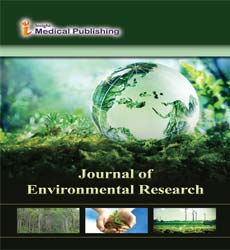Ethanol Biofuel production in Brazil: new policy and innovation
Abstract
Statement of the Problem: Biofuel production in Brazil is not new. Since the 20’s of the last century Brazilians are using ethanol blended in gasoline. In the 70’s we started one of biggest and well succeed Programs in the world for replacing gasoline, the Proalcool that as based in promoting the ethanol production from sugarcane both as a by-product of sugar production and also as a main product. Proallcool also establish the national logistics that made ethanol available as E100 in all cities and also made ethanol (E100) engines available. The amount of ethanol in gasoline was increased steadily with a mandate, till E27. More recently an innovation, the flexible fuel engines made possible for the customer to choose E100 or E27 gasoline or any mixture between them. And finally, a new National Policy for mobility decarbonization called RenovaBio established National Targets for Emissions Reduction in the fuel markets, making the fuel commercializing agents (distributors) to buy Carbon “Credits” (CBIO) generated by the biofuel producers that joined the Program. This makes gasoline (and diesel) more expensive and generated a new revenue stream for Biofuel producers making them more efficient and reducing their costs Methodology & Theoretical Orientation: With this new policy Biofuel producers are protected during the periods of lo gasoline prices, Brazilian mobility is being decarbonized, new jobs are created at the biofuels production region and new technologies are enabled. Findings: Several new technologies are starting to scale-up such as DNA edited (non-transgenic) feedstocks, new propagation methods, automation and control (4.0) as well as new industrial biofuels production such as E2G from bagasse. Hybrid plants with two different feedstocks (corn and sugarcane) are now producing ethanol and valuable by-products 365 days per year. Conclusion & Significance: Brazil can show to the world that Biofuels can be produced with no subsidies, using smart decarbonization policies and promoting Innovation with a business/ market approach.
Open Access Journals
- Aquaculture & Veterinary Science
- Chemistry & Chemical Sciences
- Clinical Sciences
- Engineering
- General Science
- Genetics & Molecular Biology
- Health Care & Nursing
- Immunology & Microbiology
- Materials Science
- Mathematics & Physics
- Medical Sciences
- Neurology & Psychiatry
- Oncology & Cancer Science
- Pharmaceutical Sciences
